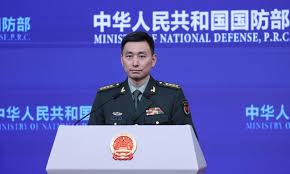Italy’s Taranto entering home stretch on off-shore wind energy project

Rome: A southern Italian city that up to now was known for environmental woes tied to one of Europe’s largest steel smelters will soon be the home to a new off-shore wind plant that will provide enough clean energy for about 18,500 families.
The plant, based in Taranto, a coastal city on the heel of Italy’s boot-shaped peninsula, is nearing completion. The so-called “Taranto Off-Shore Project” will include ten turbines producing 3 megawatts of power each.
The 30-megawatt total for the project, which will be completed in part with Chinese equipment supplier Ming Yang Smart Energy Group Ltd., will provide electrical power to around 18,500 families with near-zero greenhouse gas emissions.
Approved in June 2016, the project will be part of a broader wave of projects that, according to WWF-Italia renewable energy analyst Massimiliano Varriale, will eventually produce at least 17,000 megawatts of power nationally.
Varriale told Xinhua that at 30 megawatts, the project is relatively small, and with fixed-position wind turbines, it is not part of the trend toward floating turbines that allow the energy generating facility to be placed much further from the shore, where it would not be visible and where the wind that generates the power is more reliable.
But he said the project is still significant as part of a broader trend that could help shape Italian public opinion that has sometimes been skeptical of wind power, while also reducing the need for dirtier fuels.
A spokesman for the city of Taranto told Xinhua the city is “enthusiastic” about the project that could help renew its image.
Taranto remains best known for the former Ilva steel plant, one of Europe’s largest smelters by capacity. After years of environmental issues, the plant, now known as the Acciaierie di Taranto (Taranto Steelworks), is working to decarbonize and otherwise reduce its environmental impact.
According to media reports, the participation of Ming Yang Smart Energy Group Ltd. is important because previous supplier was unable to supply the turbines the project needed.





